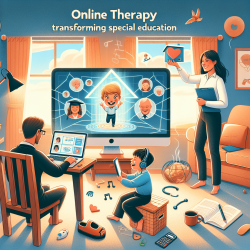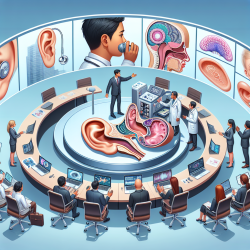Introduction
In the realm of speech-language pathology, the integration of music and sound therapy can be a powerful tool for enhancing therapeutic outcomes. Drawing insights from the research article "Tune in, Turn on: Religious Music and Spiritual Power in the History of Psychedelic Therapy," we explore how music, particularly religious and spiritual sounds, can influence therapeutic settings. This exploration not only broadens our understanding but also offers practical applications for improving speech-language therapy for children.
The Role of Music in Therapy
The research highlights the historical use of music in psychedelic therapy, emphasizing its role in creating a conducive environment for therapeutic breakthroughs. The concept of 'set and setting'—the mindset and environment in which therapy occurs—plays a crucial role in the effectiveness of psychedelic therapy. This idea can be extrapolated to speech-language pathology, where the right auditory environment can significantly impact a child's engagement and progress.
Key Findings and Applications
- Set and Setting: Just as in psychedelic therapy, creating an optimal auditory environment in speech therapy can enhance focus and receptivity. Consider incorporating calming music or nature sounds to create a soothing backdrop that aids concentration.
- Religious and Spiritual Music: The study notes the profound impact of religious music in therapy. While not all children may relate to religious music, incorporating music that resonates with their cultural or personal backgrounds can evoke positive emotional responses and facilitate learning.
- Emotional Engagement: Music has the power to evoke emotions and memories. In speech-language therapy, using music that children find emotionally engaging can enhance their motivation and participation, leading to better outcomes.
Encouraging Further Research
The intersection of music and therapy is a rich field for further exploration. Practitioners are encouraged to conduct their own research on how different types of music affect therapy outcomes. Consider partnering with music therapists to design studies that explore the impact of various musical genres on speech-language therapy.
Conclusion
Integrating insights from psychedelic therapy research into speech-language pathology can open new avenues for enhancing therapeutic outcomes. By understanding and harnessing the power of music, practitioners can create more effective and engaging therapy sessions for children. To delve deeper into the original research, please follow this link: Tune in, Turn on: Religious Music and Spiritual Power in the History of Psychedelic Therapy.










